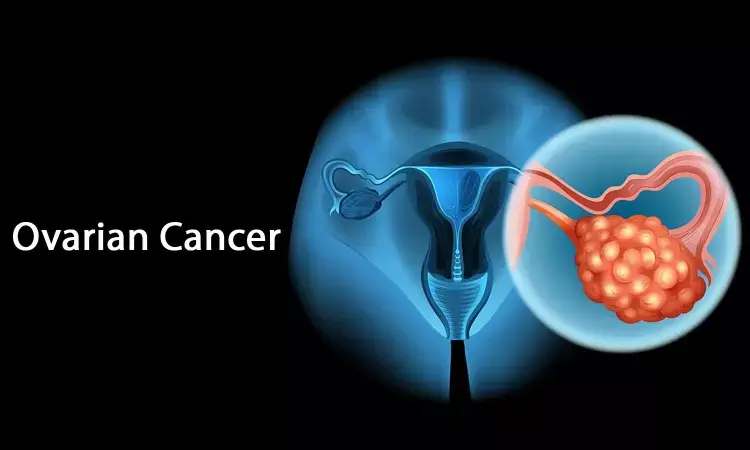- Home
- Medical news & Guidelines
- Anesthesiology
- Cardiology and CTVS
- Critical Care
- Dentistry
- Dermatology
- Diabetes and Endocrinology
- ENT
- Gastroenterology
- Medicine
- Nephrology
- Neurology
- Obstretics-Gynaecology
- Oncology
- Ophthalmology
- Orthopaedics
- Pediatrics-Neonatology
- Psychiatry
- Pulmonology
- Radiology
- Surgery
- Urology
- Laboratory Medicine
- Diet
- Nursing
- Paramedical
- Physiotherapy
- Health news
- Fact Check
- Bone Health Fact Check
- Brain Health Fact Check
- Cancer Related Fact Check
- Child Care Fact Check
- Dental and oral health fact check
- Diabetes and metabolic health fact check
- Diet and Nutrition Fact Check
- Eye and ENT Care Fact Check
- Fitness fact check
- Gut health fact check
- Heart health fact check
- Kidney health fact check
- Medical education fact check
- Men's health fact check
- Respiratory fact check
- Skin and hair care fact check
- Vaccine and Immunization fact check
- Women's health fact check
- AYUSH
- State News
- Andaman and Nicobar Islands
- Andhra Pradesh
- Arunachal Pradesh
- Assam
- Bihar
- Chandigarh
- Chattisgarh
- Dadra and Nagar Haveli
- Daman and Diu
- Delhi
- Goa
- Gujarat
- Haryana
- Himachal Pradesh
- Jammu & Kashmir
- Jharkhand
- Karnataka
- Kerala
- Ladakh
- Lakshadweep
- Madhya Pradesh
- Maharashtra
- Manipur
- Meghalaya
- Mizoram
- Nagaland
- Odisha
- Puducherry
- Punjab
- Rajasthan
- Sikkim
- Tamil Nadu
- Telangana
- Tripura
- Uttar Pradesh
- Uttrakhand
- West Bengal
- Medical Education
- Industry
Chemotherapy more effective in relapsed ovarian cancer when coupled with cytoreductive surgery: NEJM

Delhi: A new study conducted by Philipp Harter and the team shows that cytoreductive surgery followed by chemotherapy resulted in longer overall survival in women with recurrent ovarian cancer than chemotherapy alone. The findings of this study were published in the New England Journal of Medicine on 14th November 2019.
Systemic treatment has mostly been used to treat individuals with recurrent ovarian cancer. The function of secondary cytoreductive surgery is unknown. As a result, the purpose of this trial was to see if subsequent cytoreduction would improve overall survival in women with platinum-sensitive, recurrent ovarian cancer who were otherwise surgical candidates.
This trial randomly allocated patients with recurrent ovarian cancer who had a first recurrence after a platinum-free interval of 6 months or more to have secondary cytoreductive surgery followed by platinum-based chemotherapy or to receive platinum-based chemotherapy alone. Patients were considered eligible if they had a positive Arbeitsgemeinschaft Gynäkologische Onkologie (AGO) score, which was defined as an Eastern Cooperative Oncology Group performance-status score of 0 (on a 5-point scale, with higher scores indicating greater disability), ascites of fewer than 500 ml, and complete resection at initial surgery. A positive AGO score is used to identify individuals who may be candidates for full resection. Overall survival was the key end objective. Quality of life and survival predictive indicators were also evaluated.
A total of 407 patients were randomly randomized to one of two groups: 206 were assigned to cytoreductive surgery and chemotherapy, and 201 were assigned to chemotherapy alone. 75.5 percent of the patients in the surgical group who received the operation had a full resection. The median overall survival in the surgery group was 53.7 months and 46.0 months in the no-surgery group.
Patients who underwent a full resection had the best prognosis, with a median overall survival of 61.9 months. Surgery was found to be beneficial in all analyses and subgroups based on prognostic variables. Quality-of-life assessments were not different between the two groups after a year of follow-up, and there was no perioperative death within 30 days following surgery.
In conclusion, subsequent surgical cytoreduction in patients with platinum-sensitive, recurrent epithelial ovarian cancer who met these criteria looks possible, with tolerable postoperative morbidity, although it does not result in longer overall survival than no surgery.
Reference:
Philipp Harter, M.D., Ph.D., Jalid Sehouli, M.D., Ph.D., Ignace Vergote, M.D., Ph.D., Gwenael Ferron, M.D., Ph.D., et al.,Randomized Trial of Cytoreductive Surgery for Relapsed Ovarian Cancer. DOI: 10.1056/NEJMoa2103294
Medical Dialogues consists of a team of passionate medical/scientific writers, led by doctors and healthcare researchers. Our team efforts to bring you updated and timely news about the important happenings of the medical and healthcare sector. Our editorial team can be reached at editorial@medicaldialogues.in.
Dr Kamal Kant Kohli-MBBS, DTCD- a chest specialist with more than 30 years of practice and a flair for writing clinical articles, Dr Kamal Kant Kohli joined Medical Dialogues as a Chief Editor of Medical News. Besides writing articles, as an editor, he proofreads and verifies all the medical content published on Medical Dialogues including those coming from journals, studies,medical conferences,guidelines etc. Email: drkohli@medicaldialogues.in. Contact no. 011-43720751


